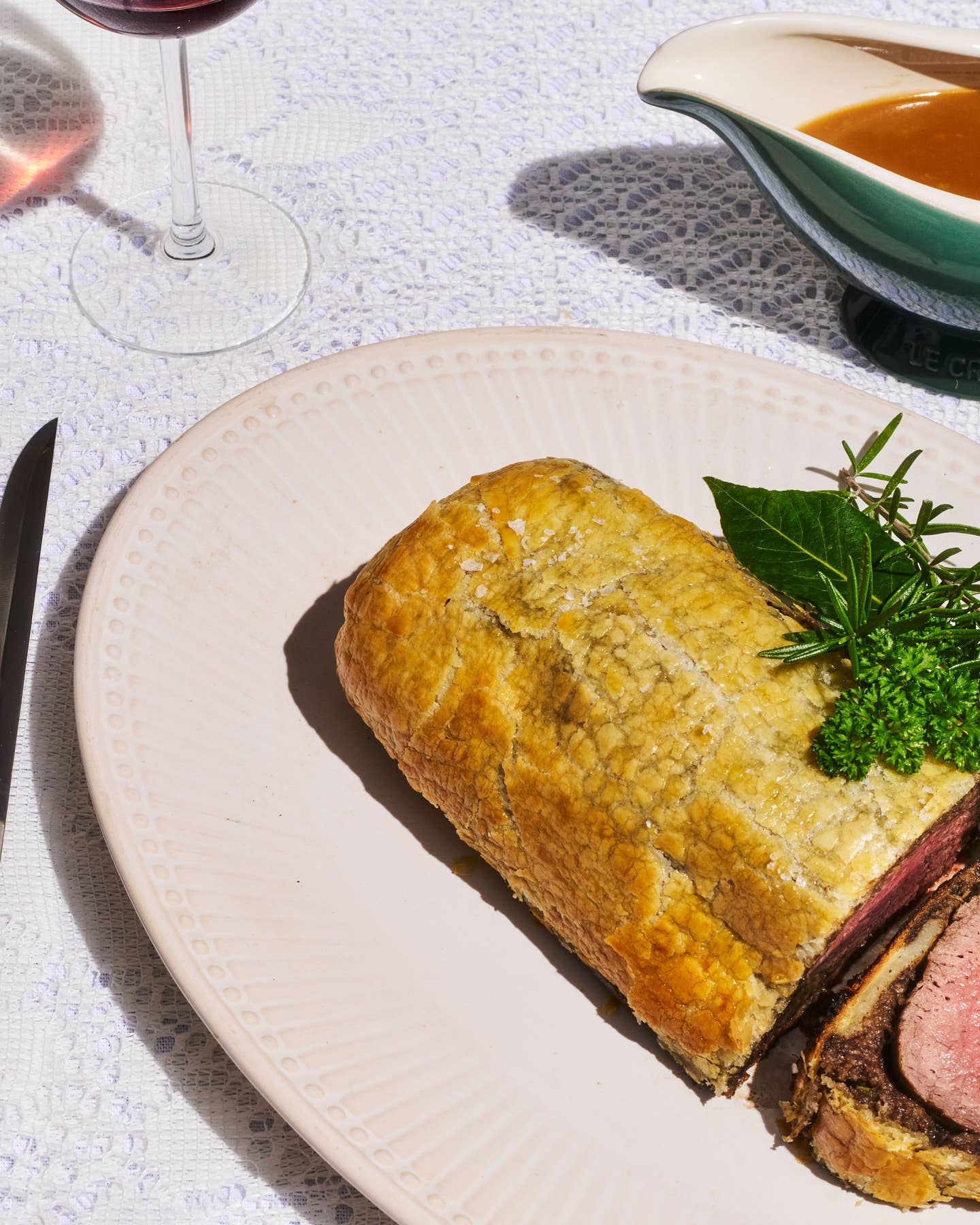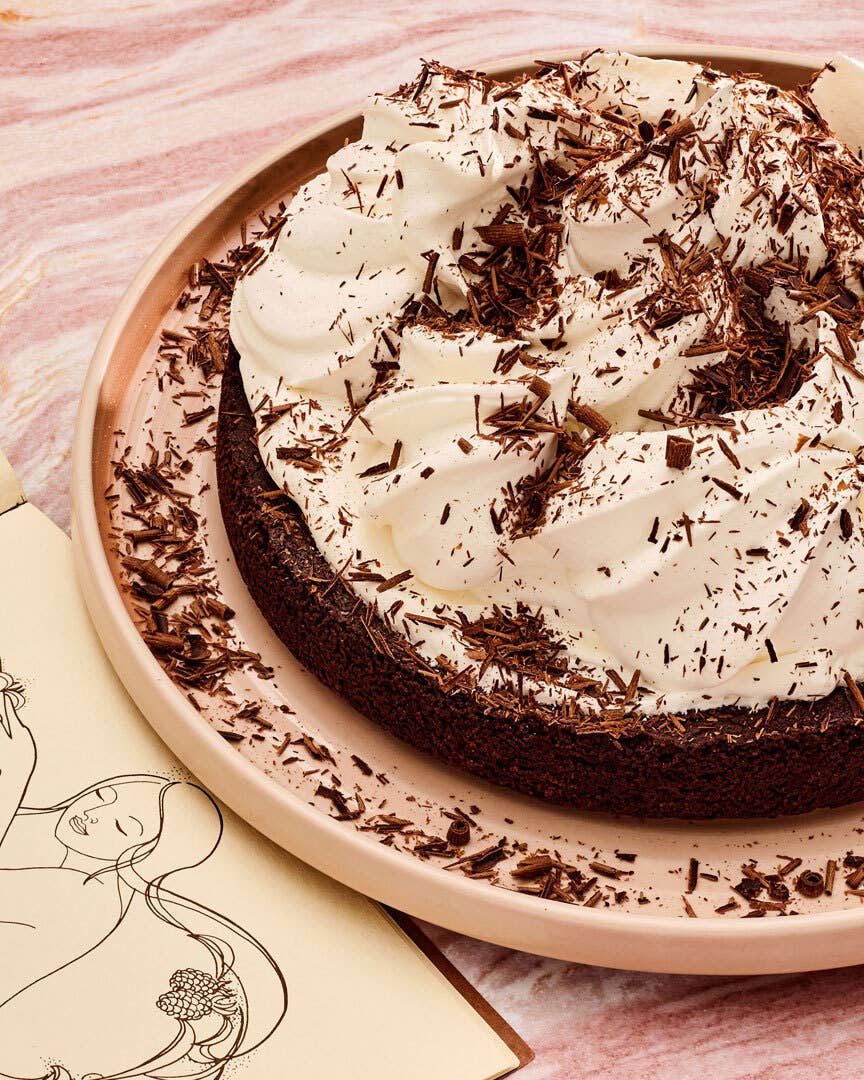
Sunday Dinner
When I was growing up in Akron, Ohio, in the 1940s, we used to have dinner with my grandfather most Sundays. Sometimes at midday, sometimes in the evening, sometimes at his house, sometimes at the Portage Country Club, but always with him at the head of a long table, holding forth on one subject or another. The eating was good. He introduced me to pheasant, shot on a tiny island in Lake Erie where he and his cronies fished, and to oysters and lobster, which came to the Midwest from Boston in ice chests loaded onto fast trains—and somewhat later to the dry martini. But food and drink were almost beside the point. My grandfather was a bossy, sentimental old Kraut, and he used those weekly gatherings the way football coaches use pregame pep talks. While he was spinning out his war stories (he had fought on the Western Front in 1918) or reminiscing about some best-forgotten cousin or great-aunt or asking us kids how we were doing in school or telling us for the umpteenth time what he thought about Franklin D. Roosevelt (not much) and taxes (even less), he was building clan identity as surely as a storyteller in a tribal village.
The most memorable of all those gatherings came on December 7, 1941. We listened to President Roosevelt's speech on the radio—he sounded like a foreigner to those of us who lived west of the Alleghenies, with his tony Hudson Valley accent—and then my grandfather took the floor. Forget about partisan politics, he said, to the astonishment of all of us, who knew how much he hated the Democrats. This is wartime, and I will tolerate no criticism of the Commander-in-Chief in this family. Some of you will have to fight. The rest will have to sacrifice. You must all do your best.
That was more than half a century ago, and I remember every word. In a life not entirely bereft of incident, nothing to match that evening has happened to me since. But I recall other Sunday dinners only slightly less vividly, like the time I came to the table with dirty fingernails. I lasted about 12 seconds.
Such memories will be foreign to most present-day children, including my own, because Sunday dinner, which once bound together so many families, rich and poor, urban and rural, Northern and Southern, has largely gone the way of the Saturday Evening Post, which used to celebrate it. Families still gather for weddings and funerals, Bar Mitzvahs and Christmas Eves, and especially for Thanksgiving, but except for special occasions, not much is left of the old idea of sitting down to a roasted joint or bird on Sunday, when there was always time to cook, to eat hearty, and to talk.
In more compact countries, the big Sunday meal is still a big deal. The British invite friends for Sunday lunch en famille, and everyone understands that they will probably eat roast beef, roast potatoes, and Yorkshire pudding. Parisians, unless they come from Provence or Gascony or another remote region, tend to head back to their native turf for the day on Sundays, clogging trains and roads. There, with their families, they eat more subtle but no less traditional fare.
But we are too spread out now. Every time I read an obituary that mentions survivors living separately in California, New York, Chicago, and Florida, I marvel that they kept in touch at all. There have been other wrenching social changes, too. Churchgoing, often a prelude to those old-fashioned Sunday feasts, has become a minority activity. Too many of us live in fractured or fragmentary families. And even the lucky families who have stayed in one piece, and in one place, have a million other things to do.
I suspect that eating together as a family, at a leisurely pace, was a bit like spending evenings reading and talking: Many people did it because they had no other way to entertain themselves. Now there is television, there are shopping malls, computers, and cars—and there are sports facilities, available to most of us, that were beyond the reach of all but the wealthy only 60 years ago.
Even those of us who don't watch much TV or hang out in shopping malls know that we're not supposed to eat the way we used to. All that red meat and all those starchy side dishes and caloric desserts—it may have been blissful abundance then, but it is wretched excess now. Two or three times a year, okay, but not 52.
So we have invented brunch. Easily cooked, quickly eaten, made for the chafing dish, brunch is gastronomic Muzak, insubstantial and uncomplicated. Mostly, brunch is eaten standing up, which means that serious subjects are less likely to be broached—or, if broached, are less likely to be pursued. Mostly, brunch is eaten in a crowd, which does not make for confidentiality. And unlike Sunday dinner, Sunday brunch provides no generational glue.
Sitting around a table for a couple of hours, kids get a chance to talk about their problems and to make their arguments. It takes time to transcend shyness and inarticulateness. Sitting around a table for a couple of hours, old-timers can dispense their wisdom and bask in the affection that their progeny are usually too busy to deliver in full measure. Family feuds, furthermore, are harder to sustain if the combatants break bread together.
My own is as frazzled a family as most, but family dinners, if not always on Sunday and not as regular as we would like, still play a role in our lives. On such occasions, we can share (and debate) our values, and renew our bonds. My stepdaughter came to grips with choosing a university over a long dinner one night in London, and my stepson animated many such meals with talk about his plans to join the Marines. We have plotted vacations and discussed crises—national, international, and personal.
Let's face it: Sunday dinner, as an institution, is not about to make a comeback—but the once-in-a-while family meal, slow food at its best, on whatever day proves convenient, is not yet quite extinct. It's at least as much worth saving as the spotted owl. I think we ought to give it a try.
Keep Reading
Continue to Next Story










